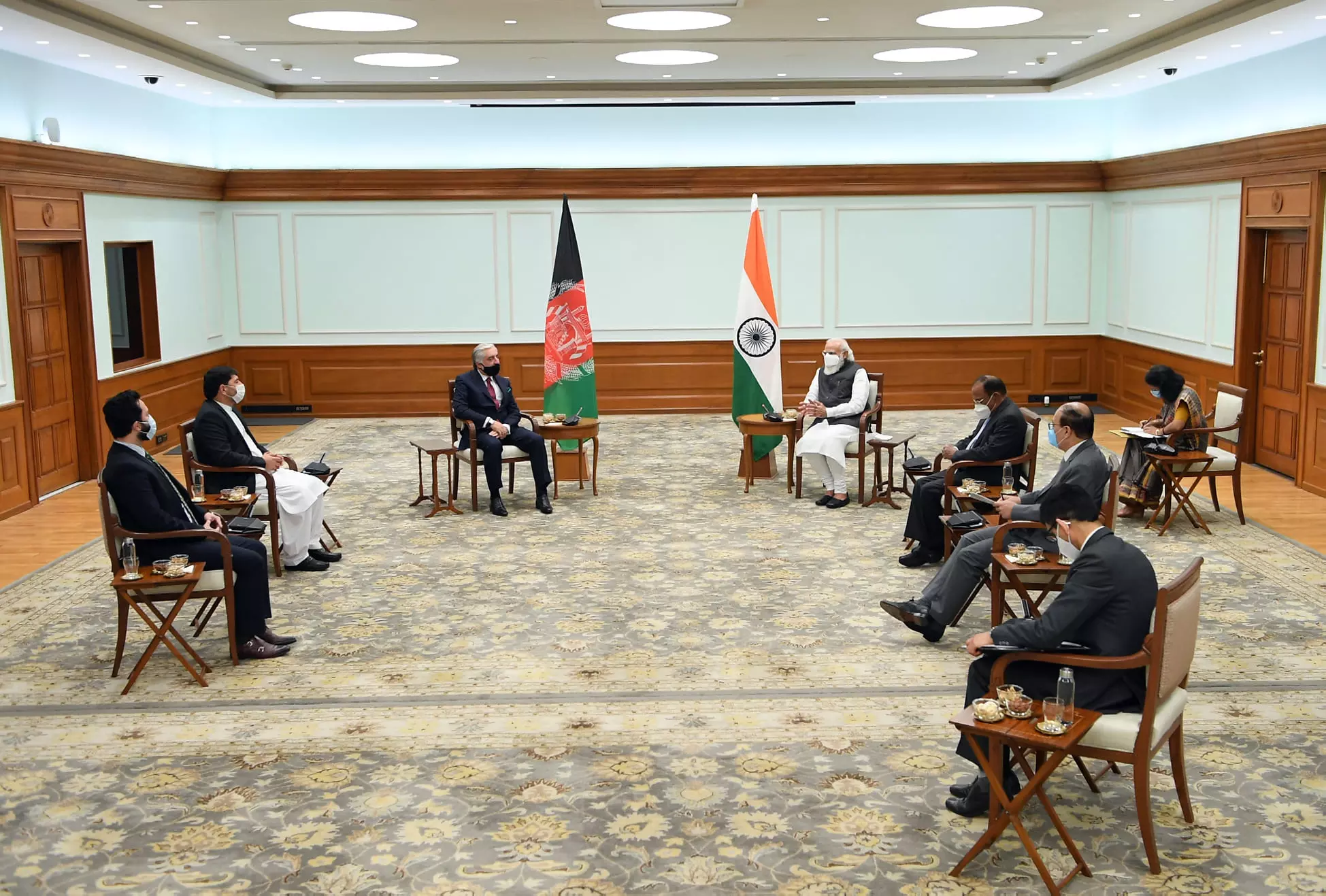
Abdullah Abdullah meets Modi as Doha talks progress
text_fieldsAbdullah Abdullah along with his delegation talks with Prime Minister Narendara Modi. NSA Ajit Doval is also seen in the picture.
New Delhi: As intra-Afghan peace negotiations are continuing in Doha, Qatar, Abdullah Abdullah, Chairman of Afghanistan's High Council for National Reconciliation and also a top peace negotiator with the Taliban, met Prime Minister Narendra Modi and his National Security Advisor Ajit Doval here on Thursday.
While Abdullah, also a key leader for the intra-Afghan talks, is seen to have some proximity with the Taliban and Pakistan, his meeting with Modi marked a significant shift in India's position on the militant group.
After the meeting Abdullah Abdullah tweeted that they took stock of the developments in the Doha talks. He also said that Prime Minister Narendra Modi assured him of India's continued support for the peace process and Afghanistan.
Pleased to meet HE Narendra Modi @narendramodi, the Prime Minister of Republic of #India. In our friendly discussion we took stock of the latest developments on the #AfghanPeaceProcess, the talks in Doha, & India's support for the peace efforts. 1/2 pic.twitter.com/D8qwqEfGAp
— Dr. Abdullah Abdullah (@DrabdullahCE) October 8, 2020
Before leaving to India, Abdullah Abdullah had said that the India was a strategic partner of Afghanistan and has continuously supported the government and people of Afghanistan.
"Our historical relations with India is very important to us, & the role of India in establishing a lasting peace in Afghanistan and the region is vital," he tweeted.
Dr. Abdullah Abdullah, Chairman of the High Council for National Reconciliation (HCNR) @SapedarPalace, accompanied by a high-level delegation, officially will visit #India. 1/5#DrAbdullahVisitToIndia#RegionalSupportForPeace
— Dr. Abdullah Abdullah (@DrabdullahCE) October 6, 2020
India has traditionally been opposed to the Pakistan-backed Taliban in Afghanistan. Thousands of Afghans were given refuge in India when they fled the country due to oppression of the Taliban regime.
India has been in support of the democratically elected governments in Kabul. Prime Minister Modi and Afghan President Ashraf Ghani share a good relationship in the region.
After last year's presidential elections, both Ghani and Abdullah had claimed victory. The disputed election results created a political stalemate for months, which eventually ended up in a power-sharing arrangement between Abdullah and Ghani in May this year.
While Ghani remains the President, Abdullah heads the National Reconciliation High Council, a body that holds peace talks with the Taliban.
Kabul has had a long troubled relationship with Islamabad because of Pakistani military's support to the Taliban.
Last month, Abdullah visited Pakistan where he announced that Afghanistan and Pakistan were on the threshold of a new relationship based on "mutual respect, sincere cooperation, and shared prosperity".
In his meetings with Pakistan Prime Minister Imran Khan and powerful military chief Qamar Javed Bajwa, Abdullah advocated that the neighboring countries in the region should cooperate with each other.
Modi's meeting with Abdullah suggests that New Delhi was more than willing to back the democratically elected Ghani and Abdullah to arrive at a resolution with the Taliban.
The Intra-Afghan peace negotiations, which started last month between the Taliban and the democratically elected government representatives are going on in Qatar.
The talks aimed at ending the 19-year war have not led to any resolutions yet.
In Afghanistan, despite the efforts for peace, massive violence continues unabated.
The negotiations in Qatar follow a landmark peace deal between the US and the Taliban signed on February 29.
The US-led NATO forces, under the deal, will leave Afghanistan by May 2021 in exchange for an end to violence from the Taliban.























